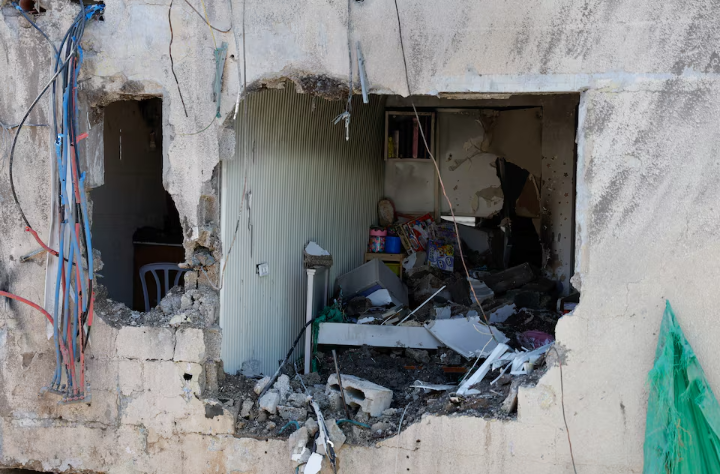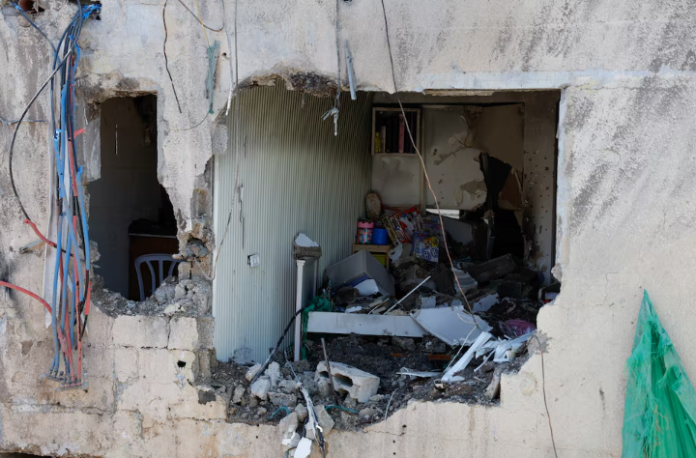Amid intense airstrikes and failed diplomatic efforts, tensions between Iran and Israel have reached a breaking point. Iran has rejected European peace proposals as “unrealistic,” while Israel claims it has assassinated a key Iranian military commander involved in operations against the Jewish state.
Since June 13, a brutal week-long exchange of missile attacks has gripped the Middle East. The conflict began when Israel, citing fears that Iran was close to developing nuclear weapons, launched a series of airstrikes. Iran retaliated with missile strikes, claiming its nuclear program is solely for peaceful purposes.
According to Iranian state media, over 430 Iranians have been killed and 3,500 wounded, while Israel reports 24 civilian deaths from Iranian missile fire. Human rights organizations report an even higher Iranian death toll, claiming 639 fatalities, including nuclear scientists and senior military officials.
In a significant escalation, Israel says it killed Saeed Izadi, a senior commander in Iran’s Quds Force, during a strike on an apartment in Qom. Izadi, responsible for supporting Hamas before the October 7, 2023 attacks on Israel, was listed under U.S. and British sanctions. Israeli Defense Minister Yoav Gallant called the operation a “major intelligence and military success.”
Meanwhile, Iran’s Foreign Minister Abbas Araqchi met with European officials in Geneva, hoping to revive diplomacy. However, Iran dismissed the Western proposals outright. Araqchi insisted Iran would not negotiate on its right to enrich uranium or its defense capabilities. “Zero enrichment is a dead end,” a senior Iranian official told Reuters.
Araqchi emphasized that Iran cannot negotiate while under attack, especially if the United States, a backer of Israel, continues its support. He warned that U.S. involvement would be “extremely dangerous.” The minister is set to visit Moscow for further discussions with Iran’s ally, Russia.
The U.S. remains undecided about stepping into the conflict. Former President Donald Trump, a frontrunner in the current U.S. election cycle, stated he would take up to two weeks to decide whether to support Israel militarily. Trump warned that Iran could acquire a nuclear weapon in “weeks or months,” though U.S. intelligence testified in March that there was no evidence Iran was building a warhead.
The Isfahan nuclear facility—one of Iran’s largest—was hit during the strikes, although the IAEA confirmed there was no nuclear material present. Nevertheless, Gulf nations like Qatar raised alarms over potential fallout from attacks on nuclear sites near their borders.

The conflict has not spared civilian infrastructure. Iranian authorities claim Israeli missiles struck three hospitals, killing a child and two medical workers, and damaging ambulances. Meanwhile, an Iranian missile reportedly hit a hospital in southern Israel.
Air raid sirens rang out across central Israel and the West Bank early Saturday. Israeli forces intercepted multiple missiles over Tel Aviv, with loud explosions heard throughout the city.
Despite rising tensions, French President Emmanuel Macron spoke with Iran’s newly elected President Masoud Pezeshkian, urging a return to diplomacy. But Israel maintains it will not back down until Iran’s nuclear and missile programs are dismantled—however long that takes.
With regional powers like Turkey, Russia, and China calling for calm, the coming weeks will test whether diplomacy can survive in a storm of missiles.



